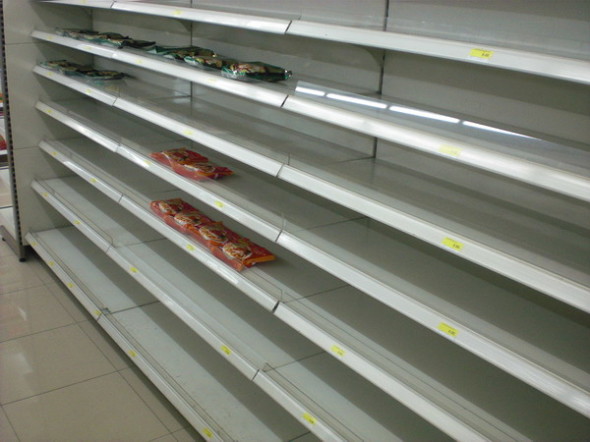
As much of the country continues to be under a strict lockdown, and Covid-19 cases are being discovered in many of the country’s factories, shoppers are reporting growing food shortages in Thailand.
This is due to more than 100 food processing factories having been shut down across the country, or currently running with a skeleton staff.
As food shortages begin to occur panic buying could also kick off, just as it did in the west last year with toilet paper, facial tissues, bottled water, beans and rice and other products deemed to be in short supply.
Panic buying, of course, exacerbates the problem, and eventually causes food shortages in food types that would never have been in short supply otherwise.
Meanwhile, some markets around Thailand are closing due to not being able to get the food they need to stock their stalls and shelves.
Fewer food deliveries worsening food shortages in Thailand
As shortages worsen, food suppliers are decreasing the number of deliveries they make in order to save fuel costs, thus exacerbating the situation even further.
Food vendors around Thailand are also reporting the cost of staples like meat, fish, chicken and vegetables is beginning to increase as supplies dwindle.
To make matters worse, Thai social media users are posting photographs of empty or near empty shelves in supermarkets and 7-11s, potentially panicking shoppers even further.
While any food item can be in short supply in a crisis, and strict lockdowns are most definitely a crisis both economically and socially, the items that seem to be experiencing shortages are the things most Thais buy often — noodles, meat, snacks, instant meals, frozen foods, canned fish, sausages and even milk.
If lockdowns continue and food processing factories remain closed or with employees working shorter hours, these food shortages in Thailand could worsen.
Meanwhile, the Thai Wholesale and Retail Trade Association says many factories around Thailand are operating at 20% to 30% of capacity due to lockdowns and increasing Covid cases (*Please note, ‘cases’ does not mean illness, simply that people have tested positive for the Covid-19 virus or for fragments of it. Many remain asymptomatic).
As there continues to be an increased demand for groceries due to much of the country being mandated to stay home, food shortages in Thailand could worsen further.



